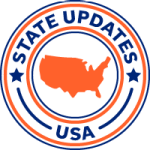
Policy Matters Brief August 10, 2020
New Jersey legislature passes COVID presumption
With passage of Senate Bill 2380, New Jersey is added to the growing list of states developing policy for COVID-19 workplace exposure. The bill permits most essential workers, including first responders, healthcare workers and others who have direct public contact to qualify for workers’ compensation benefits if sickened by the virus. The rebuttable presumption covers claims from March 9, 2020 until the end of the governor’s COVID-19 emergency declaration. However, state employees who were offered the option of working at home but refused will not qualify. Additionally, insurers are barred from counting COVID claims in employers’ modification ratings. The bill is awaiting action by the Governor.
New York moving forward with medical electronic bill processing
After a slight delay, the New York Workers’ Compensation Board (WCB) continues to develop their electronic medical bill processing project. Known more commonly as the CMS-1500 project, the WCB is looking to ease billing and electronic transmission of medical bills and records. The first step of Phase 1, initiated in 2019, consolidated various NY-specific medical billing forms and attachments into the CMS-1500 form for medical billing. The second step under Phase 1, initiated in February 2020, was a voluntary submission by billing providers to transmit their CMS-1500 bills through a clearinghouse (XML submission partners) to work comp payers. After a COVID-19 related delay, the WCB
re-initiated development of the project by reminding stakeholders to continue their voluntary submittals under Phase 1 as the WCB moves toward initiation of Phase 2, the submittal of EOBs in 2021. More information on this project can be found here.
Michigan auto no-fault UR rule-making progresses
Previously proposed Michigan auto no-fault utilization review (UR) rules have moved to the next phase of formal rule-making: review by a state legislative committee. The latest version, amended after comments, should be adopted unless there are committee objections. The rules address the overall UR process for providers and insurers, including review of treatment by insurers, requests for records from providers, provider appeals and state certification of an insurer’s UR program. The rules permit insurers to contract with vendors to perform UR activities on their behalf.
Once finally adopted, the rules are written to apply to “treatment, training, products, services and accommodations provided after July 1, 2020.” However, the rule text contains a built-in provision providing a 60-day implementation timeframe from the effective date of the rules for insurers to ensure their UR programs are in place. The Department of Insurance and Financial Services is also expected to publish the various new forms referenced in the rules and establish additional timelines for initial certification.
IAIABC reviews fee schedule development
The International Association of Industrial Accident Boards and Commission (IAIABC) has released a new issue paper titled "A Look at Fee Schedules - Policy Choices & Considerations." This resource looks into the process of fee schedule development in several jurisdictions and explores several aspects of fee schedules: goals, design, updates/maintenance and stakeholder engagement. Our Public Policy & Regulatory Affairs team contributed to this paper, which IAIABC members can download for free and at a marginal cost for non-members.




